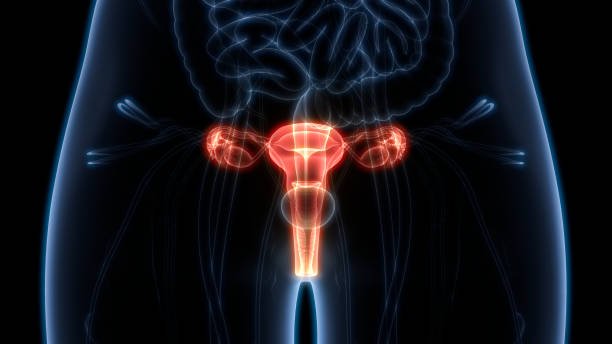
Can Patients With Ovarian Cancer Still Get Pregnant? Let Me Tell You How to Pass On the Family Line!
The symptoms and treatment course of ovarian cancer may affect fertility and even cause infertility. If those with ovarian cancer want to become pregnant, they must discuss the treatment methods with their doctors and then plan the pregnancy process. We will explain how ovarian cancer affects female fertility and introduce treatment options for ovarian cancer pregnancy preparation and infertility.
How does treatment for ovarian cancer affect fertility?
Before understanding how ovarian cancer affects health, let’s take a look at how the ovaries work in the reproductive system. The ovaries are responsible for ovulation. In most cases, the left and right ovaries take turns ovulating. This pair of ovaries does not work at the same time. There are also some people who have one ovary ovulating for several months in a row. Therefore, as long as one ovary is left, the ability to ovulate can be maintained and fertility can be continued.
For patients who want to have children in the future, if the lesions are found early in stage 1a under the first stage classification of ovarian cancer, that is: “cancer cells only appear in one ovary or fallopian tube, and in the pelvis and ascites “No cancer cells have appeared. If the cancer cells have not spread to surrounding lymph nodes or distant organs”, doctors can perform fertility-preserving surgery. They only need to remove the ovary on the side of the lesion and retain the uterus and the ovary on the other side. With the fallopian tube, patients with ovarian cancer can also become pregnant.
However, if a patient has entered stage 1b under the first stage classification of ovarian cancer, although other conditions are similar to patients in stage 1a, only when cancer cells appear in both ovaries or fallopian tubes, they cannot be treated again. Leave either ovary intact. Fortunately, the uterus has not been affected, and ovarian cancer patients can still try to have children through egg donation from others.
However, for patients who have the opportunity to retain their ovaries and become pregnant, the influence of postoperative chemotherapy and radiotherapy may cause early decline of ovarian cancer and reduce fertility. It is important to discuss with your doctor.

Ovarian cancer causes infertility
- Surgical removal of both ovaries
- Chemotherapy causes amenorrhea and affects ovarian function
- Radiation therapy affects ovaries’ ability to produce mature eggs
At present, medicine has not found an absolutely effective way to protect the ovaries, but some studies have found that if the ovaries are allowed to rest temporarily and stop ovulation during chemotherapy, there is a chance of reducing premature ovarian failure. Pituitary inhibitors can be injected or other drugs can be taken to suppress ovulation to protect the ovaries.
What should patients with ovarian cancer do if they are infertile and want to have children?
- In vitro fertilization
In vitro fertilization (IVF) is a method suitable for the above-mentioned patients who have entered stage 1b of the first stage of ovarian cancer. While the uterus is preserved, eggs provided by other women are used with the eggs of their partners. Sperm, through the reproductive technology of in vitro fertilization, then implant the fertilized egg into the uterus. The success of pregnancy with this treatment depends on the quality of the eggs and sperm and the health of the mother’s body. - Frozen embryos and frozen eggs
This is currently the most effective method to solve infertility. This method involves fertilizing sperm and eggs in a laboratory and freezing them, or freezing the eggs directly until a suitable sperm donor becomes available. After the patient with ovarian cancer undergoes surgery and the anti-cancer treatment is completed, the fertilized eggs are then implanted into the uterus. - Adopt children
The assessment standards of various relevant agencies are different. Adoption is actually a process that requires patience and perseverance and may take one to two years. - Surrogate mother
A surrogate mother is another woman who carries the pregnancy on your behalf. Traditional or partial surrogacy involves placing a partner’s sperm into the surrogate’s vagina, usually through artificial insemination. A complete surrogate mother places the combined embryo between your partner’s sperm and the egg previously removed from your body in the uterus of the surrogate mother. This type is much more complicated than traditional surrogacy.

3 key points for assessment of ovarian cancer patients before pregnancy
- Risk of cancer in children
Many people who have cancer worry that their children may also develop cancer. Studies indicate that children of cancer patients and cancer survivors are at higher risk for the disease, but some cancers are passed on from parents to their children. If the cancer you suffer from is hereditary and may affect your children, if you are worried, it is recommended to discuss and consult with your doctor. - Risk of cancer recurrence
Studies indicate that pregnancy does not appear to cause cancer to come back. Some health care providers recommend that breast cancer survivors wait two years before becoming pregnant. There is a link between certain hormones that are increased during pregnancy and the growth of breast cancer cells. However, there is no scientific evidence that there is an increased risk of cancer if a woman becomes pregnant within two years of completing treatment. Some studies even point to a lower risk of breast cancer returning in subsequent pregnancies.
For some survivors, pregnancy may require stopping certain medications. But stopping taking medications like Tamoxifen or Imatinib can increase the risk of the cancer coming back. People planning a family need to talk about how much risk they are willing to accept. - Uncertainty about the future
Cancer may come back, so before you plan to have a baby, it’s a good idea to discuss with your partner how to raise the baby if only one person is left.
Having a baby can be a difficult decision for cancer survivors. There are many things that survivors and their partners need to consider before starting or adding to their family life. Some health care providers recommend that women not get pregnant for the first six months after completing chemotherapy. Any damaged eggs will leave the body within the first six months, and experts recommend waiting 2 to 5 years before trying to have a baby because cancer is more likely to come back early. And cancer treatment during pregnancy is more complicated












